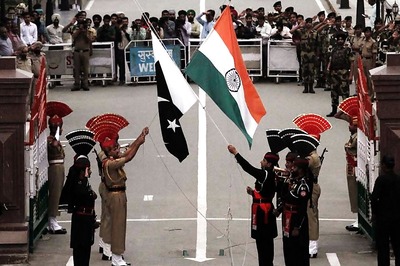
views
New Delhi: A class 7 boy of a reputed private school in Delhi was caught passing notes by his teachers. Nothing out of the ordinary, the teachers thought. Kids do that. But when they saw the notes they were left stunned. The note said:
“I am an illegitimate child. My mother is like Indrani Mukerjea. She likes having sex with many men”
The matter was reported to the Principal who called in the child’s parents. A suspension followed and the boy is now undergoing counseling.
The school understandably wants to hush up the matter. They feel helpless in the situation. How do you tackle something like this?
How do you tell students to not watch news because it can have a detrimental effect on their psyche?
The incident highlights the impact that news has on teenagers and minors.
Most schools encourage the habit of reading newspapers in students but when all the national dailies have salacious details of a woman’s personal life then what?
Ashok Agarwal, senior lawyer and child rights activist who has been working for reform in the education sector feels that not enough attention is given to the impact the media has on young, impressionable minds. The Sheena Bora case is a clear example of how media has crossed all limits, he feels.
“Trial by media has to stop. Media needs to be sensitive to what information and content it puts out. The focus must remain on investigation. A line needs to be drawn, and it will have to be done internally by the media itself,” he says.
Not an isolated case
A class 8 boy was caught flashing a girl from his class. When the girl was put through counseling she revealed that several boys had exposed themselves to her over a period of time. The shocked school authorities are still trying to ascertain if she was a victim of sexual harassment or peer pressure or if it was a disturbing game of ‘you show me yours and I’ll show you mine’.
In another incident a teacher caught a boy and a girl of class 12 making out in an empty room on the premises of a reputable private school.
Schools are increasingly feeling the pressure of somehow controlling such behavior on their campus. They feel the issue is best tackled at home, by parents who can monitor what the child is watching or reading.
Disturbing trend
According to a recently published report the average age of first sexual contact or experience in India is 14 years. Cases of sexually transmitted disease in teens are at an all time high. Teens are having sexual intercourse by the age of 14 and by the age of 16 have had multiple partners. The need for sexual education has been ignored for too long.
Experts feel that it is important that parents and teachers ensure that children get the correct information and from reliable sources. The media can play a big role in that.


















Comments
0 comment